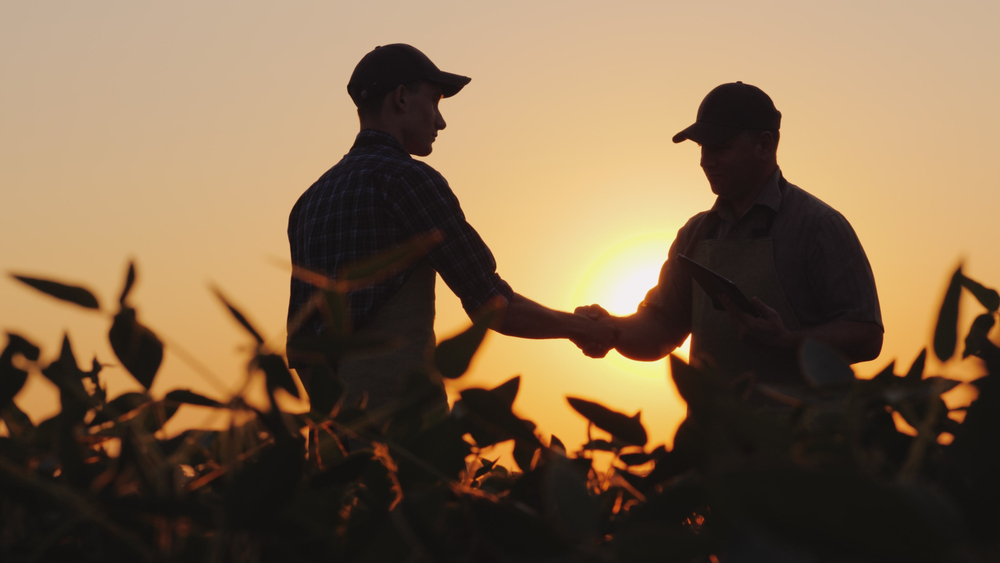Farm Management

Do any of the following situations sound familiar? “I have some cows or run stockers with my brother, neighbor, friend, etc.” or “I farm on halves, or shares, with a farmer I know but basically my only inputs are land and a small percentage of the other costs.”
Some of us have relationships like the ones just mentioned, but have you ever stopped to think whether there are any rights or responsibilities associated with farming with another person?
Definition of a General Partnership
By definition, a general partnership is the association of two or more persons to carry on as co-owners a business for profit forms a partnership, whether or not the persons intend to form a partnership.
A person who receives a share of the profits of a business is presumed to be a partner in the business, unless the profits were received in payment of a debt or for services or rent. The statements in the remainder of this article are paraphrased from the Alabama General Partnership Act, Ala. Code § 10A-8-1.01 et seq.
A joint tenancy, tenancy in common, joint property, or part ownership does not by itself establish a partnership, even if the co-owners sh29are profits made by the use of the property. Also, the sharing of gross returns does not by itself establish a partnership, even if the persons sharing them have a joint or common right or interest in property from which the returns are derived.
Liability for Debts
“A partnership is liable for loss or injury caused to a person, or for a penalty incurred, as a result of a wrongful act or omission, or other actionable conduct, of a partner acting in the ordinary course of business of the partnership or with authority of the partnership.” Ala. Code § 10A-8-3.05. “All partners are liable jointly and severally for all obligations of the partnership unless otherwise agreed by the claimant or provided by law.” Ala. Code § 10A-8-3.06. “Jointly and severally” means that each of the partners is liable, but if one partner cannot pay his share the remaining partners have to pay that partner’s share.
Assume you and your brother are running cattle and sharing the profits, by definition you are a general partnership. Suppose your brother’s employee was injured while cutting hay for the cattle because your brother did not explain the operation of a piece of machinery and a court awarded the employee $2 million in damages. The court would first take all the partnership assets, let’s call it $500,000, next the court would take the your personal assets. If your brother only had $400,000, the court would take the remaining $1,100,000 from you.
Your brother wanted a new truck. He told the Ford dealer that the two of you were in business together and he was purchasing the truck for the cattle operation. Since the two of you do not have a business checking account, your brother paid half and told the Ford dealer to send you an invoice for the other half. Can he do that? “Each partner is an agent of the partnership for the purpose of its business. An act of a partner, including the execution of an instrument in the partnership name, for apparently carrying on in the ordinary course the partnership business or business of the kind carried on by the partnership binds the partnership, unless the partner had no authority to act for the partnership in the particular matter and the person with whom the partner was dealing knew or had received a notification that the partner lacked authority.” Ala. Code § 10A-8-3.01.
Other Rights and Duties
Relations among the partners and between the partners and the partnership are governed by the partnership agreement. To the extent the partnership agreement does not otherwise provide, the General Partnership Act as applicable, governs relations among the partners and between the partners and the partnership. Without a partnership agreement:
- Each partner is entitled to an equal share of the partnership profits and is chargeable with a share of the partnership losses in proportion to the partner’s share of the profits.
- Each partner has equal rights in the management and conduct of the partnership business. A difference arising as to a matter in the ordinary course of business of a partnership may be decided by a majority of the partners. An act outside the ordinary course of business of a partnership and an amendment to the partnership agreement may be undertaken only with the consent of all of the partners.
- A partner may use or possess partnership property only on behalf of the partnership (no personal use). A partner is not a co-owner of partnership property and has no interest in partnership property which can be transferred, either voluntarily or involuntarily.
- Property is presumed to be partnership property if purchased with partnership assets, even if not acquired in the name of the partnership
- A person may become a partner only with the consent of all of the partners.
- A partner has the power to dissociate at any time, rightfully or wrongfully, by express will. The partnership must purchase the dissociating partner’s interest at the fair value of such interest.
*This article is for information purposes only and is not a substitute for legal advice or recommendations.

